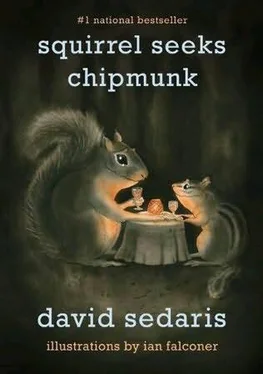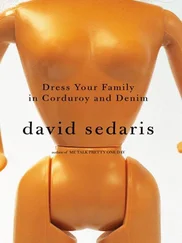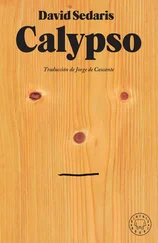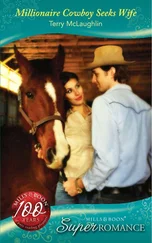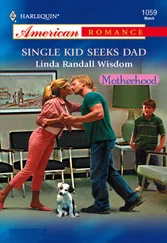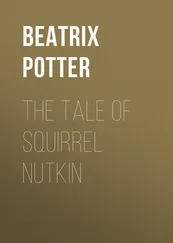From there I peered into what’s called the den. That’s a room where people go to be themselves-or at least some idea of themselves. You see a lot of boats in dens, but in this one the theme was owls. Not real ones-I don’t think I could have handled that-but representations, both flat and three-dimensional: Screech-owl andirons, a candle in the likeness of a white barn owl. Above the mantel was a rather clumsy painting of a snowy owl hovering above a cross-eyed ferret, and on the desk, a small figurine of a great horned owl. Take away its glasses and the mortarboard cocked just so on his head, and it was me. Or perhaps I’m being too egotistical. It wasn’t just me. It was my mother, my brother, my sister and cousins. Everyone, basically, who I’m trying to get away from.
It’s not just that they’re stupid, my family-that, I could forgive. It’s that they’re actively against knowledge-opposed to it the way that cats, say, are opposed to swimming, or turtles have taken a stand against mountain climbing. All they talk about is food, food, food, which can be interesting but usually isn’t.
There are, of course, exceptions. I once had a fascinating conversation with a seagull who was quite the authority on the subject of the French-fried potato. I always thought they were all the same, but not so apparently. To hear her tell it, the taste varies according to what sort of oil is used.
I said, “What sort? ” Who knew there was more than one kind of oil! Then there’s the question of texture, with crisp on one end and soggy on the other. The type of potato makes a difference as well, as does its age and exposure to the elements.
Following our talk, I went on a restaurant jag. Every night I’d pick a new one and look through the windows into their kitchens. What I saw, aside from the ovens and so forth, were a lot of mice. This kept me going back to restaurants and led to an encounter, the night before last, in the parking lot of a steak house. There I came upon a rat making his way toward the back door. “Not so fast, friend,” I said.
One of the things an owl learns early is never engage with the prey . It’s good advice if you want to eat and continue to feel good about yourself. Catch the thing and kill it immediately, and you can believe that it wanted to die, that the life it led-this mean little exercise in scratching the earth or collecting seeds from pods-was not a real life but just some pale imitation of it. The drawback is that you learn nothing new.
So this rat, it was as if he were following a script. “I just swallowed some poison,” he claimed. “Eat me, and you’re destined to die as well.”
It’s embarrassing to hear such lies, to think they think you’re dumb enough to believe them.
“Oh please,” I said.
The rat moved to plan B. “I have children, babies, and they’re counting on me to feed them.”
I said to the guy, “Listen. There’s not a male rat in the history of the world who’s given his child so much as a cigarette butt, and don’t try to tell me otherwise. In fact,” I went on, “from what I hear, any baby of yours has a better chance of being eaten by you than fed by you.”
“True enough,” the rat admitted. His body relaxed beneath my talons, and I felt his hope leak onto the asphalt, as surely as if it were blood or urine.
“I’ll make you a deal,” I said. “Teach me something new, and I’ll let you go.”
“This is a joke, right?” the rat said.
“No,” I told him. “I mean it. You tell me something, and if I find it interesting, I’ll release you.” This was how I’d learned about dens and English furniture, about roof tiles and vegetable oil and reproduction carriage lamps.
“All right,” said the rat, and he paused, thinking. “Did you know that all this restaurant’s shrimp are frozen?”
“No, I didn’t, but that’s not really good enough,” I told him. “Nothing that goes on in a steak house would surprise me, especially if it’s a chain. You need to think farther afield.”
“Okay,” he said, and he told me about the time he tried to have sex with his mother.
“How is that supposed to help me be a more well-rounded individual?” I asked. “Don’t you know anything important? ”
Then he told me that there’s a certain kind of leech that can only live in the anus of a hippopotamus.
“Get out of town,” I said.
“No, honest,” he swore. “I had an uncle who lived at the zoo, and he heard it firsthand from the hippo herself.”
It was one of those things so far-fetched it simply had to be true. “All right,” I said, and I lifted my foot off his back. “You are free to go.”
The rat took off across the parking lot, and just as he reached the restaurant’s back door, my pill of a brother swooped down and carried him away. It seemed he had been following me, just as, a week earlier, I’d been trailed by my older sister, who ate the kitten I had just interrogated, the one who taught me the difference between regular yarn and angora, which is reportedly just that much softer.
“Who’s the smart one now?” my brother hooted as he flew off over the steak house. I might have given chase, but the rat was already dead-done in, surely, by my brother’s talons the second he snatched him up. This has become a game for certain members of my family. Rather than hunt their own prey, they trail behind me and eat whoever it was I’d just been talking to. “It saves me time,” my sister explained after last week’s kitten episode.
With the few hours she saved, I imagine she sat on a branch and blinked, not a thought in her empty head.
After my brother took off with the rat, I flew to a telephone pole on the far end of the parking lot. A leech that lives in the anus of a hippopotamus. Talk about a closed society! What must it be like to live like that, your family within spitting distance your entire life?
My next stop was the city zoo. I’ve heard there are some that house the animals in actual landscapes, fields and jungles and the like. Ours, I discovered, is more old-fashioned, geared toward the viewer rather than the viewed. The panther’s cage is about the size of an eighteen-wheel truck. Our lions have it a little better, but then there are two of them. I don’t know how much territory a hippo might require in the wild, but here at the zoo her pen is on the small side, not even as big as a volleyball court. There’s a pool for her to submerge herself in, and the ground around it is paved in cement. A sign in front of her display reads, LOIS, but that, she explained, was just her slave name. “I don’t go by anything, not now, not ever,” she told me. “It’s just not the hippo way.”
What struck me right off was her warmth and accessibility. You expect this with miniature goats, but hippos, I’d heard, were notoriously grumpy.
“Oh, I have my moments,” this one said, and she started talking about her teeth. They looked like pegs hammered at random into her gums, and it seemed that one of them had been giving her trouble-which is not to make her sound like a complainer, far from it. “It’s not all bad, living in the zoo,” she told me. “True, I don’t have much space, but at least it’s all mine. For a while last year they brought in a male, trucked him over from some wildlife center in the hopes we’d get it on and have a baby, but the pregnancy didn’t happen, which was fine by me. It’s not that I don’t want kids, I just don’t want them now, if you get what I’m saying?”
“Sure.”
“So anyway, how about you?”
I told her that great horned owls hook up for life, a rarity in the bird world. My mate passed away before our first clutch of eggs could hatch, but I learned a while ago that it’s best to keep this to myself. “A mood killer” is what the seagull diplomatically called it. And it’s true. Someone tells you his mate died, was struck by an ambulance, no less, and of course it casts a pall. That’s why I didn’t mention it to the hippo-I wanted to spare her the awkwardness.
Читать дальше
